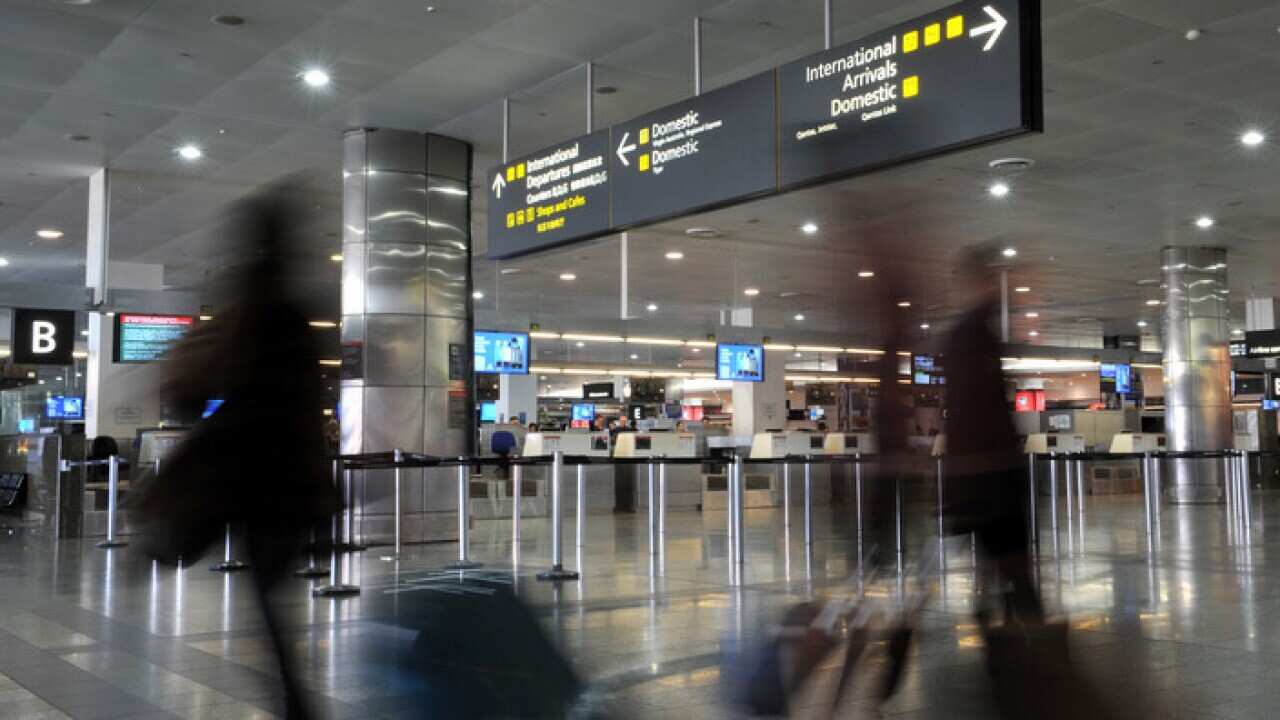Peter Mares lavora per Inside Story Magazine ed ha analizzato per anni i trend migratori australiani.
Ha appena completato una ricerca commissionata dalla SBS sulle conseguenze di quello che vede come un nuovo orientamento a favore dell'immigrazione temporanea.
Anche se questo tipo di immigrazione porta con sé dei vantaggi, basti pensare al settore australiano dell'istruzione internazionale, che vale 27 miliardi l'anno, secondo Mares ci sono anche dei costi ad esso associati: in particolare si riferisce allo sfruttamento di lavoratori immigrati.
Un esempio è quello dei lavoratori addetti alle pulizie nel Melbourne Cricket Ground, sottopagati tra il 2009 e il 2014.
Il caso venne scoperto inizialmente da SBS News e innescò un'inchiesta del Fair Work Ombudsman.
"Below labour wage code. I was really furious because it was hard-earned money picking up rubbish and vomits of drunken audience that's watching footy"
Secondo Peter Mares questo tipo di scandali pone una questione importante.
L'Australia si sta spostando da un modello basato sull'immigrazione permanente ad uno basato su visti temporanei che marginalizzano gli immigrati e li rendono vulnerabili allo sfruttamento e all'abuso?
"Settlers came, they quickly achieved permanent residency and citizenship and became fully-fledged members of the Australian political community with the same rights as anyone else. We're now creating a scenario where we have a large number of people who don't have the same rights as everyone else, who don't get to vote, who aren't represented by politicians and who are also more vulnerable in the workplace because of their visa status and that to me is troubling for a country that prides itself on a history of social cohesion and harmony."
Mares sottolinea che l'immigrazione temporanea ha di gran lunga superato quella permanente, con un numero di visti per studenti internazionali, turisti in working holiday e lavoratori specializzati che è circa il triplo dei visti permanenti.
I visti 457, dopo varie contestazioni, sono stati sostituiti dai visti Temporary Skills Shortage ((TSS)), che sono divisi in due sottogruppi - breve e media durata.
Solo i TSS visa di media durata offrono la possibilità di giungere alla residenza permanente.
Peter Mares ritiene che questo cambiamento aumenti la possibilità di sfruttamento dei lavoratori temporanei.
"If you create conditions where people are very keen to stay in Australia but their prospects for doing so are very narrow, then you might create a whole lot of circumstances where they will attempt to please their boss, for example. They certainly won't rock the boat at work in the hope of finding a pathway to permanent residency."
La Presidente nazionale ad interim del Migration Institute of Australia, Leanne Edwards, nutre perplessità simili sui nuovi visti TSS.
"A person who knows they have to remain a certain amount of time with an employer to get their permanent residency will now have to remain a third longer. They have to remain three years, not two years and our members certainly do report cases of clients reporting very, very substandard working conditions, exploitation, being underpaid, working too many hours etc and simply being too frightened to report any such incidents because they know that their permanent residency may be on the line."
Abul Rizvi era un alto funzionario del Dipartimento dell'Immigrazone tra il 1995 e il 2007, quando si è dimesso dal ruolo di Vice Segretario.
Secondo Rizvi lo sfruttamento dei lavoratori immigrati temporanei è un tema importante, ma lo sfruttamento dei lavoratori riguarda tutta la forza lavoro più in generale.
"It is not just confined to temporary entrants, I agree it is more prevalent amongst temporary entrants but it is a bigger problem and in my view the problem should be addressed directly by government possibly with the involvement, a stronger involvement, of the unions to deal with the problems of exploitation. I don't think stopping temporary entry or reducing temporary entry is the right solution to the exploitation problem."
Peter Mares ritiene che l'aumento di visti temporanei potrebbe essere un tentativo di pacificare coloro che ritengono che il numero di nuovi immigrati in Australia dovrebbe essere ridotto.
"There is a strong and vocal anti-immigrant sentiment in Australia. We see it in the One Nation party, we see it expressed by Tony Abbott, or a view that migration is too high, so one way of responding politically to that - and I don't know what's going on in the minister's mind, of course - but one way of responding to that is to cut the permament migration intake and say look, we're not bringing in so many people but at the same time, use temporary migration to solve the labour market problems that are emerging, like a lack of workers in aged care."
SBS News ha contattato ripetutamente il Ministro per la Cittadinanza e gli Affari Multiculturali, Alan Tudge, ma non ha finora avuto la possibilità di intervistarlo.
L’articolo di Peter Mares è disponibile online: https://www.sbs.com.au/allworknostay
